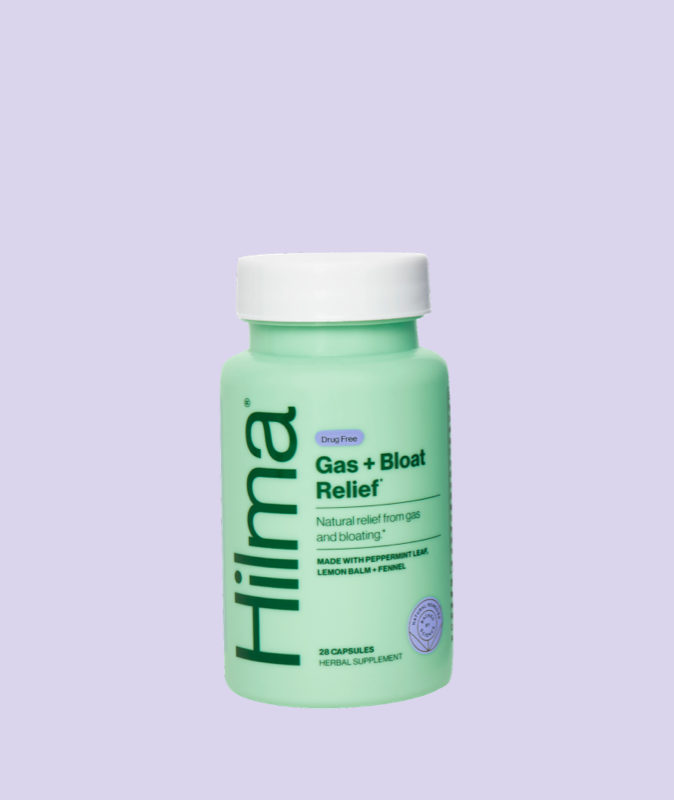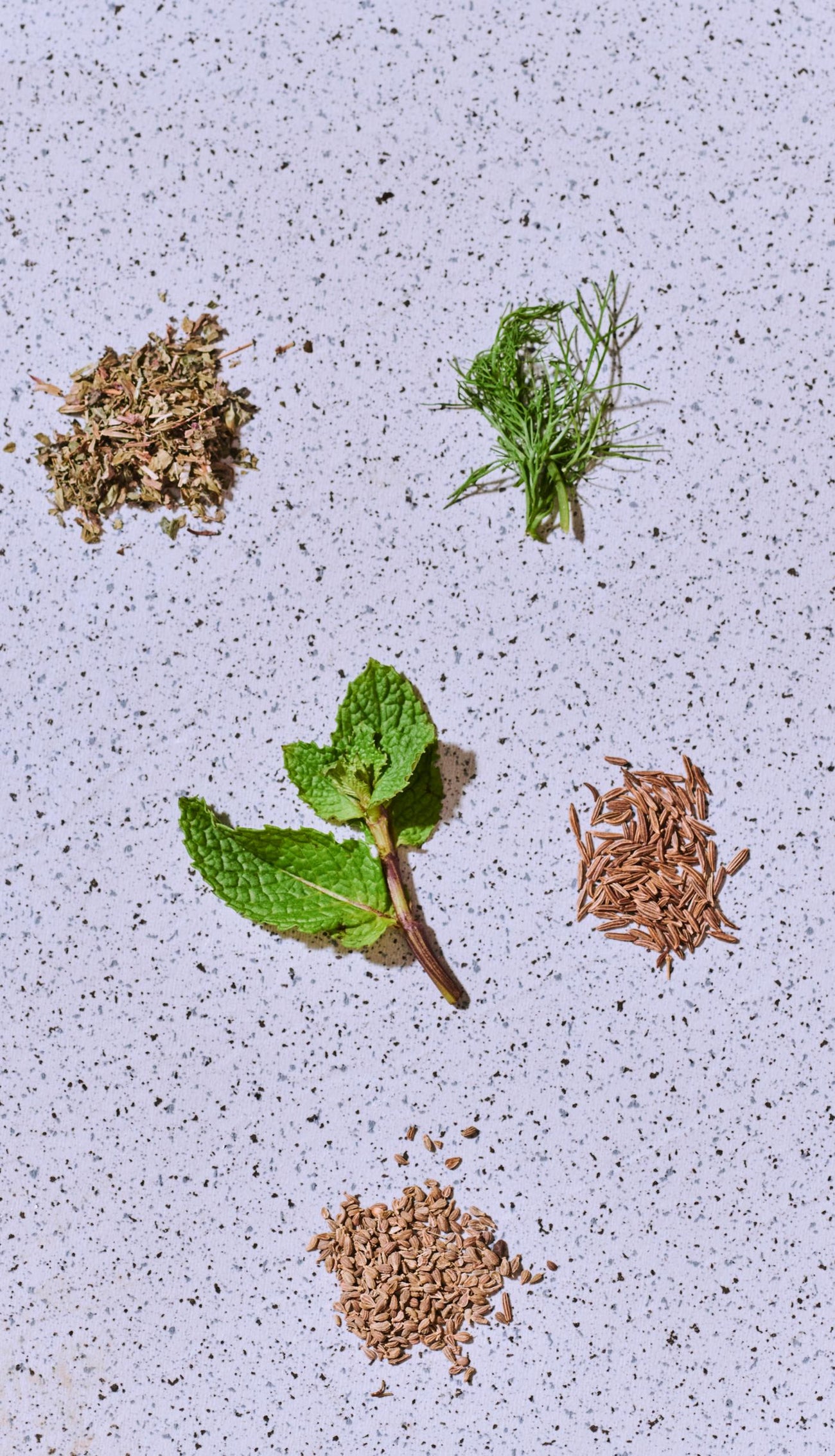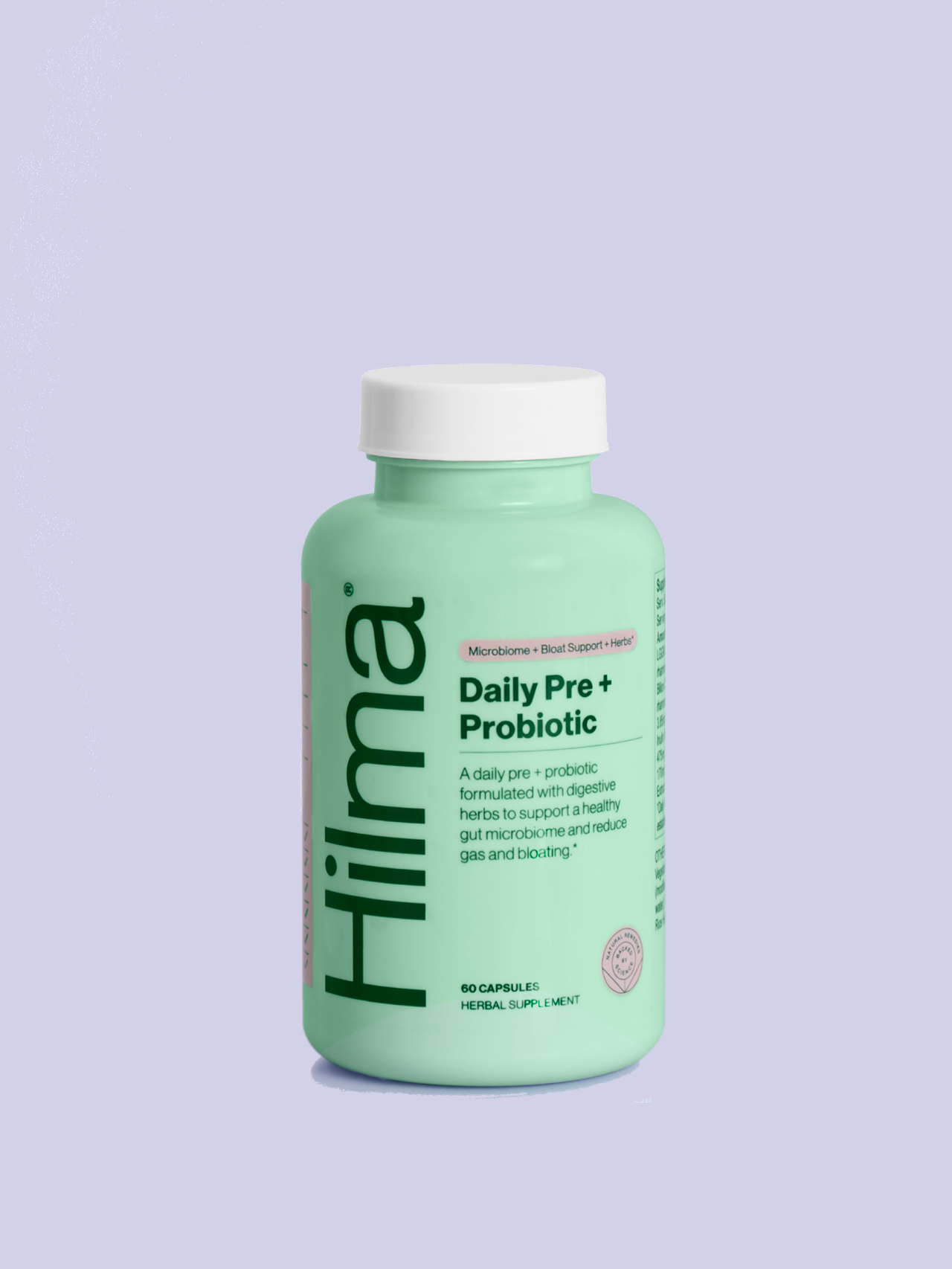What is bloating?
Have you ever eaten a large meal that left you feeling gassy and bloated? What about after eating fibrous vegetables or beans? Or maybe your bloating is more constant -- it seems like no matter what you eat, you feel swollen and bloated. Bloating is a common condition caused by excessive air or gas stuck somewhere in your digestive tract. It could be trapped gas or gas produced by an overgrowth of bacteria in your small intestine (1). Remember, you want bacteria in your digestive system, you just want to make sure that there is a healthy balance! While occasional bloating is normal, when you experience it with almost any food, it could be a sign that something is wrong.
What could be triggering or causing bloating?
One of the most common causes of bloating can be consuming gas-producing foods. Even healthy foods like beans, raw vegetables or cruciferous vegetables can cause gas and bloating through the digestive process. Certain people also may be sensitive to foods like dairy or gluten, so it’s important to listen to your body and see how you feel 15-30 minutes after eating a meal. Other foods such as those high in sugar or excessively processed foods can lead to unbalanced bacteria that produce too much gas for your small intestine to be happy. While you might think of bloating as a distended stomach, it is actually your intestines!
Constant or excessive bloating could be due to a variety of factors, and just like with anything uncomfortable, it is important to get to the root cause to find relief. The six top causes of bloating include stress, food sensitivities and intolerances, SIBO (overgrowth of bacteria in the small intestine), gut bacteria dysbiosis, gastroparesis (a gut motility issue), and constipation (2). One simple practice is to consider how quickly you eat. Just eating quickly can lead to bloating! Your body wants you to sit, chew every bite thoroughly and enjoy your food.
What foods can reduce bloating?
While certain foods can trigger bloating, there are also foods that can help relieve uncomfortable bloating and distension.
Lemons
Water with a squeeze of lemon juice before a meal can stimulate your GI tract to help prepare it for the food that is ahead. Lemon water is also a great reminder to get some additional hydration! While it might seem counterintuitive, drinking water can reduce bloating. The additional water can remove excess sodium that your body is holding on to.
Fennel Seeds
Fennel is a natural diuretic that can help reduce intestinal gas. The seeds are packed with antispasmodic and anti-inflammatory compounds that can relax intestinal muscles. Consider adding some seeds to a cup of tea or slicing up fresh fennel into your salad. Fennel can additionally be found in Hilma's Gas & Bloat Relief. This addition to your medicine cabinet also includes lemon balm, which can help relax the digestive tract (3).
Ginger
Ginger contains zingibain, a digestive enzyme, that can help break down protein. Ginger is traditionally thought to help reduce nausea, but can be applied to an array of gut issues. Zingibain’s digestion support can help reduce bloating and help you enjoy your meal more (4). Add a slice of ginger to a hot cup of water before, during, or after a meal.
Avocado
No one needs to tell me twice to enjoy avocado toast. Avocados, similar to bananas, are high in potassium, a nutrient that helps reduce bloating.
Cucumber
Similar to how a cucumber sitting on your eye can reduce puffiness, it can do the same to your GI! Cucumber contains an antioxidant called quercetin, which can reduce swelling (5). Think about snacking on some cucumber or throwing together a simple cucumber salad with red onions and dill.
This information is for educational purposes only, and should not be taken as medical advice. Please consult your physician before treating any disorder
How else can I minimize bloating?
For additional natural support to decrease bloating, try Hilma's Gas & Bloat Relief, formulated with a powerful blend of herbs proven to relieve gas and bloating.
Sources
- Clinical Gastroenterology and Hepatology
- The American Journal of Gastroenterology
- Hilma
- Food Science & Nutrition Journal
- Nutrients




